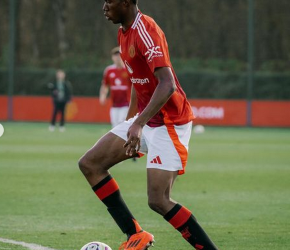“Fundamentals are as important as leadership. One solidifies the bottom, and the other keeps the tabs from the top.” – Kosi Fiaka
Ghana football, once a symbol of hope and triumph, has plummeted into disarray. The nation that proudly celebrated an U20 World Cup victory in 2009 and an inspiring quarterfinal run in the 2010 World Cup now stands on the edge of obscurity. Across all levels—Under 17, Under 20, Under 23, and women’s football—Ghana’s performance has deteriorated. The Black Stars’ dismal exit in the 2019 AFCON Round of 16 signaled the beginning of a downward spiral, with subsequent early exits in 2021, 2022, and 2023. Now, Ghana faces the real threat of missing the 2025 AFCON—a prospect not seen since 2004.
The recent 5-0 defeat of Ghana’s U20 team by Germany’s U20 is a harsh reflection of the broader crisis. This is not just an isolated failure but a symptom of a broken system that no longer produces the talent required for international success.
At the heart of this downfall is the leadership—or lack thereof—within the Ghana Football Association (GFA), led by Kurt Okraku. Poor decision-making, stagnation of grassroots development, and a faltering domestic league are stifling young talent. The GFA’s administrative failures over the past five years have been catastrophic, and without urgent reform, Ghana risks losing an entire generation of football talent.
The problem extends to infrastructure, with outdated training facilities, decaying stadiums, and minimal youth academies. This lack of investment leaves Ghanaian footballers ill-equipped to compete globally.
The contrast with former coach Akwasi Appiah, whose recent success with Sudan has reignited discussions, underscores Ghana’s stagnation. While Sudan looks poised for AFCON qualification, Ghana faces continued decline. What went wrong?
To resurrect Ghana football, massive investment in grassroots development is needed. Establishing youth academies and structured training programs will help nurture talent. Equally important is a complete overhaul of the GFA leadership. Fresh, visionary leaders must bring accountability and ambition to the forefront, replacing empty slogans with genuine reform.
Revitalizing the domestic league is another critical step. Upgraded infrastructure and financial restructuring will attract fans and ensure a sustainable environment for local talent. A league that develops stars rather than exports them is essential to Ghana’s resurgence.
Engaging former players and coaches as mentors will create an invaluable link between generations, fostering a culture of excellence. Additionally, partnerships with international institutions can help elevate Ghana’s standards through knowledge exchange and access to resources.
A national football summit should be convened, bringing together all stakeholders to map out a collective vision for the future. This isn’t just about the GFA; it’s about reigniting the spirit of Ghana football and rallying the nation around a shared goal.
In conclusion, while the cracks in Ghana football are undeniable, they can be mended. By addressing the fundamentals through strong leadership, investment, and a renewed focus on youth development, Ghana can reclaim its position as a football powerhouse. The time for action is now—before the nation’s proud footballing legacy fades into history.
Reviving Ghana Football: A Call for Urgent Reform
Written by Emmanuel Atanga
I am an ardent sports fan who is so passionate about the world of sports.
I love to share my passion for sports with fellow minded people like you.
Please join me on this sports journey as i delve into all the action that gives us so much joy.





0 Comments